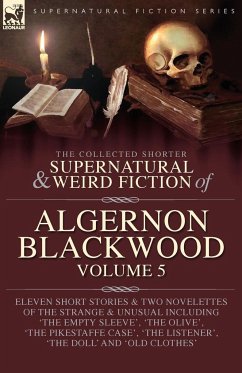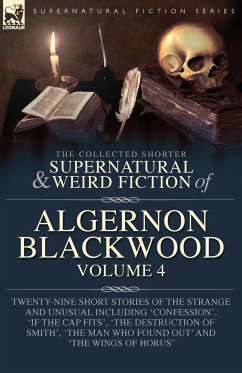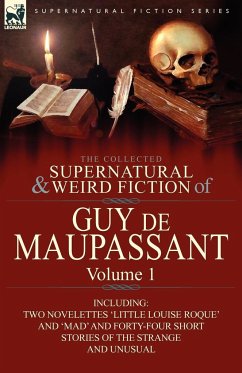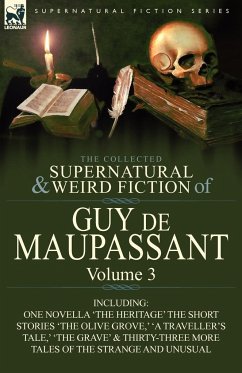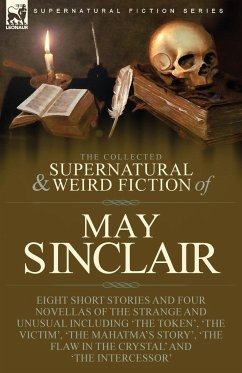
The Collected Supernatural and Weird Fiction of May Sinclair
Eight Short Stories and Four Novellas of the Strange and Unusual Including 'The Token', 'The Victim', 'The Mahatma's Story', 'The Flaw in the Crystal' and 'The Intercessor'

PAYBACK Punkte
10 °P sammeln!
Ghostly tales from an active feminist and suffragist of fine literary ability May Sinclair was the pseudonym used by the prolific, but underrated, British writer, Mary Amelia St. Clair. Active in the late 19th and early 20th centuries, Sinclair was typical among writers of her period in the significant volume and breadth of her literary output, which included novels, short stories and poetry. From 1896 Sinclair, motivated by the need to support herself and her mother, wrote professionally. Her 1913 novel, 'The Combined Maze', was highly praised by George Orwell, whilst Agatha Christie regarded...
Ghostly tales from an active feminist and suffragist of fine literary ability May Sinclair was the pseudonym used by the prolific, but underrated, British writer, Mary Amelia St. Clair. Active in the late 19th and early 20th centuries, Sinclair was typical among writers of her period in the significant volume and breadth of her literary output, which included novels, short stories and poetry. From 1896 Sinclair, motivated by the need to support herself and her mother, wrote professionally. Her 1913 novel, 'The Combined Maze', was highly praised by George Orwell, whilst Agatha Christie regarded it as, 'one of the greatest English novels of its time'. Her work was also well received in the United States of America. She wrote two volumes of supernatural fiction, 'Uncanny Stories' and, 'The Intercessor and Other Stories' both of which are included in this Leonaur collection. Several authorities on the supernatural genre have praised the quality of Sinclair's work, with regrets only about the modest number of such stories she wrote. Sinclair's writing is considered to be be subtle, concise and modern despite her choice of traditional themes. In this Leonaur edition readers will discover 'The Intercessor', 'The Token', 'The Flaw in The Crystal', 'If the Dead Knew' and others. Leonaur editions are newly typeset and are not facsimiles; each title is available in softcover and hardback with dustjacket.







